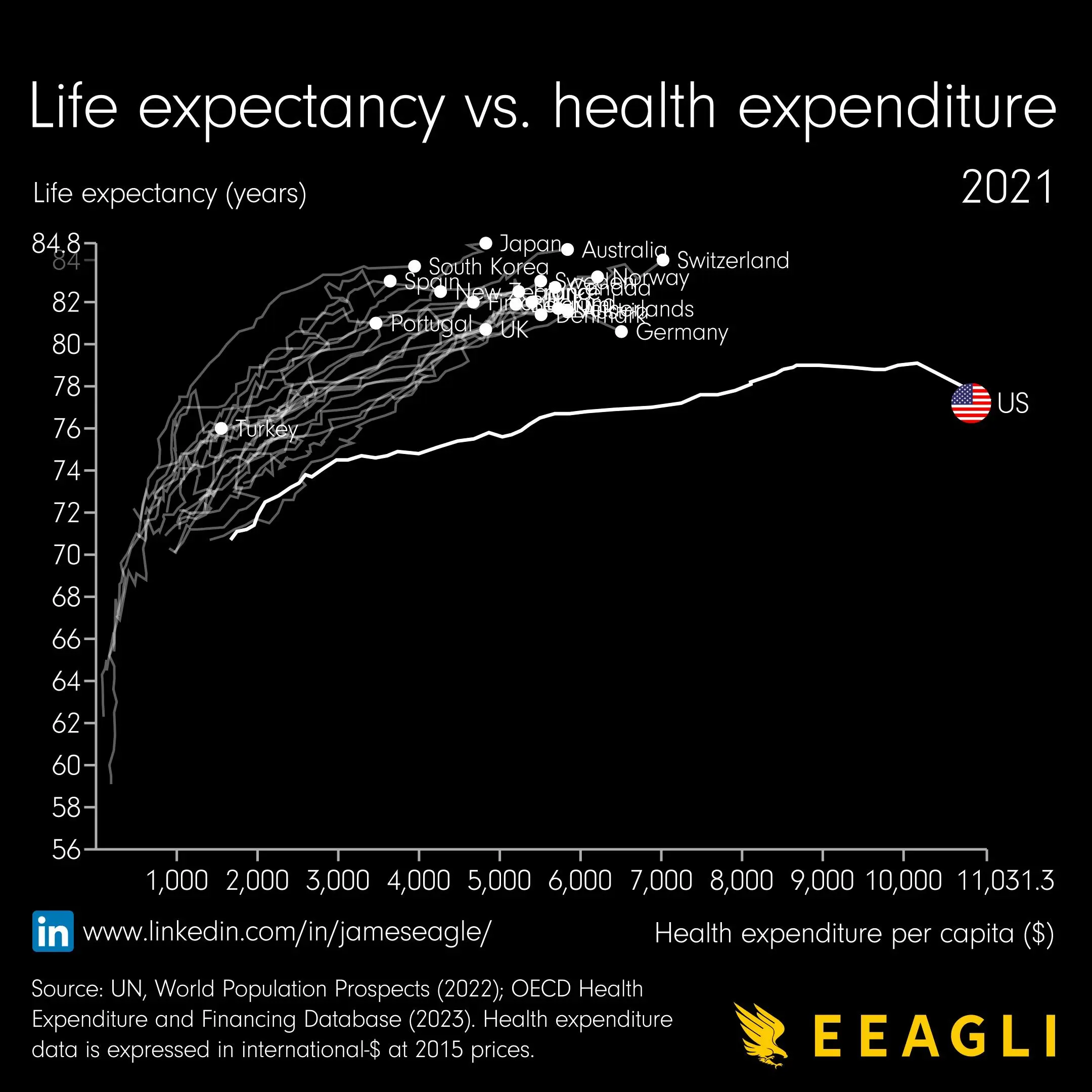this post was submitted on 17 May 2024
348 points (100.0% liked)
Data Is Beautiful
160 readers
2 users here now
A place to share and discuss data visualizations. #dataviz
(under new moderation as of 2024-01, please let me know if there are any changes you want to see!)
founded 4 years ago
MODERATORS
you are viewing a single comment's thread
view the rest of the comments
view the rest of the comments

The market has solved it.
You just don't realize what the market has solved for. It didn't solve the problem of expensive healthcare, it solved the problem of how to maximize profits for the wealthy.
That's what people don't understand about "the market". What you think it's doing isn't what it's actually doing.
If the free market had any real competitors, the problem would genuinely solve itself in favor of the consumer. We see this with any new tech where a bunch of new firms try to win customers by any means necessary in those first few years.
The problem as always is: where are the competitors after X years, and are these "competitors" actually competing anymore?
The solution as always is: regulate. Ensure competition. Ensure cartels aren't price fixing. But no one wants to hear that
The streaming market has tons of competition. So then why are prices endlessly rising and content being removed and the value being made worse with ads?
The video game market also has tons of companies in it, and yet most of them are making the experience worse with ads and service-based games.
I'm so old I used to install my games on 5 1/2" floppies. I dispise how the video game market changed from an ownership model to service-based and micro transactions models that are popular today. Don't even get me started on mobile games. What I have noticed is that I am paying almost the same price for a video game today as I was 30 years ago. A game that I paid approximately $75 for in 1994 I should be paying approximately $150.00 for a new release today. Yet I'm still paying $75 for a game, they have to be making up that difference somewhere. Now the tools needed to make a game have had an enormous impact on reducing costs, and there's a whole bunch of other economic stuff I'm ignoring. Regardless, it's still kind of amazing the price of games hasn't inflated.
By the time the system has consolidated enough that there is little effective competition, those companies have also become so large that they can lobby for regulatory capture. It's not zero regulation, but rather a form of regulation that solidifies their position while still providing the same shitty service they always have.
Regulation won't work. The system is too far gone.
What other tools are there for ensuring a fair market? Government intervention seems like the only avenue
Stop expecting politians to be the source of change. The results will be lackluster, at best.
Everybody knows this. You don't have to state it so pretentiously like you're the only jerk who knows it. It's been said on the internet billions of times for 2 decades at least.